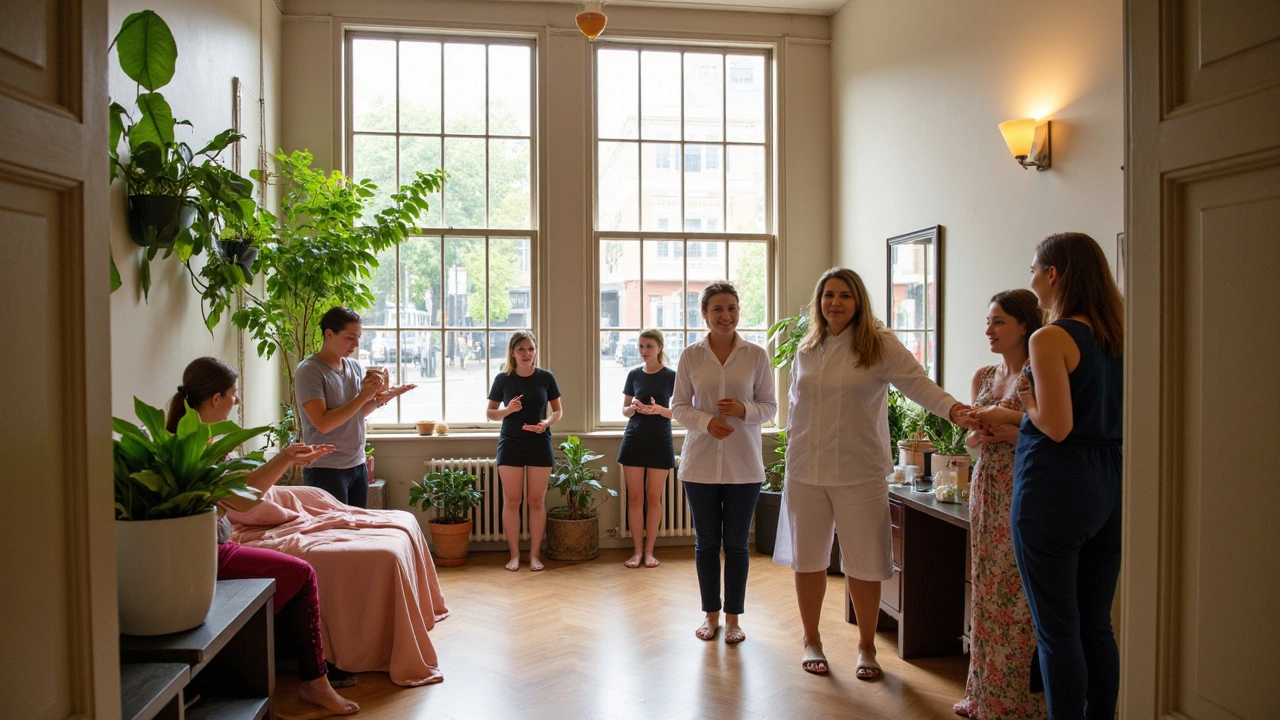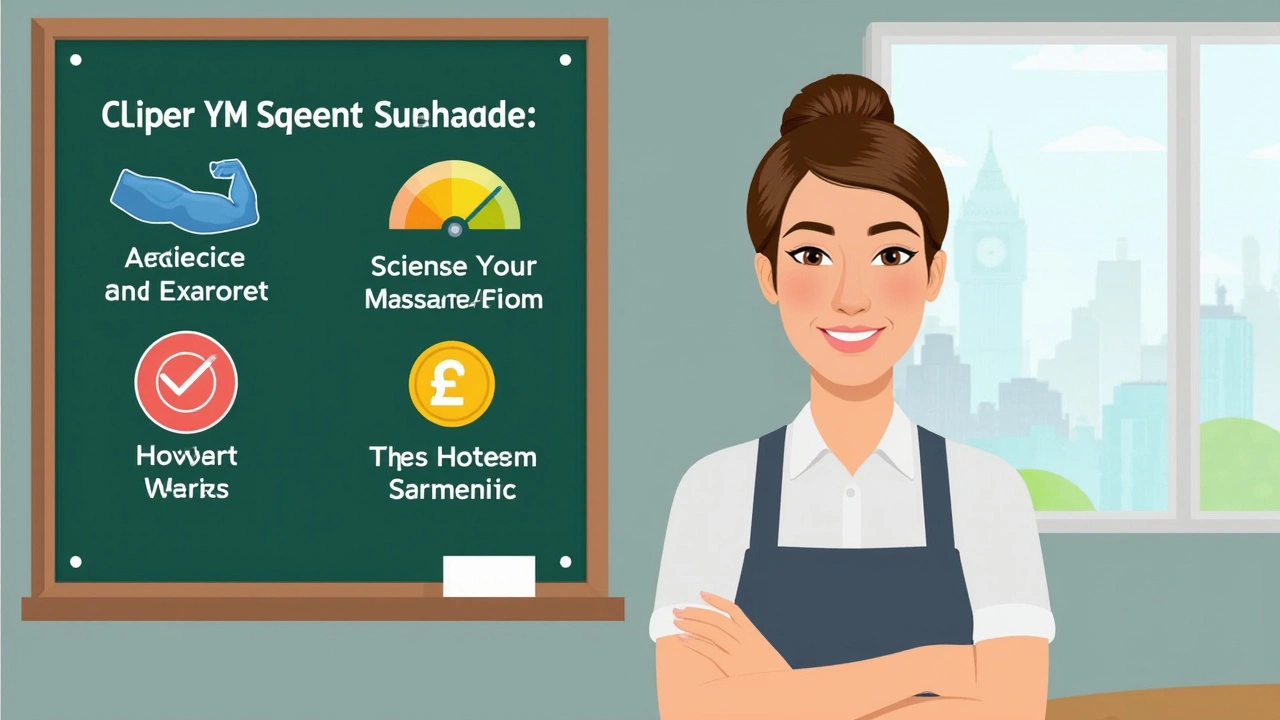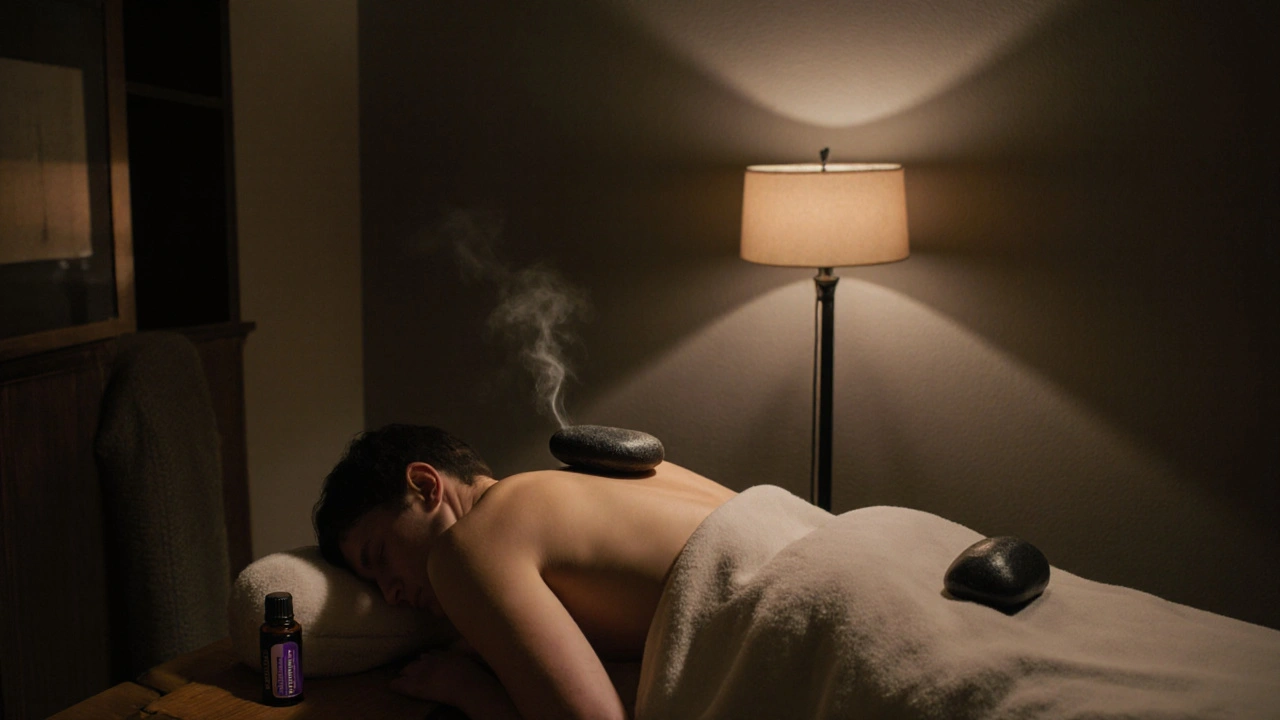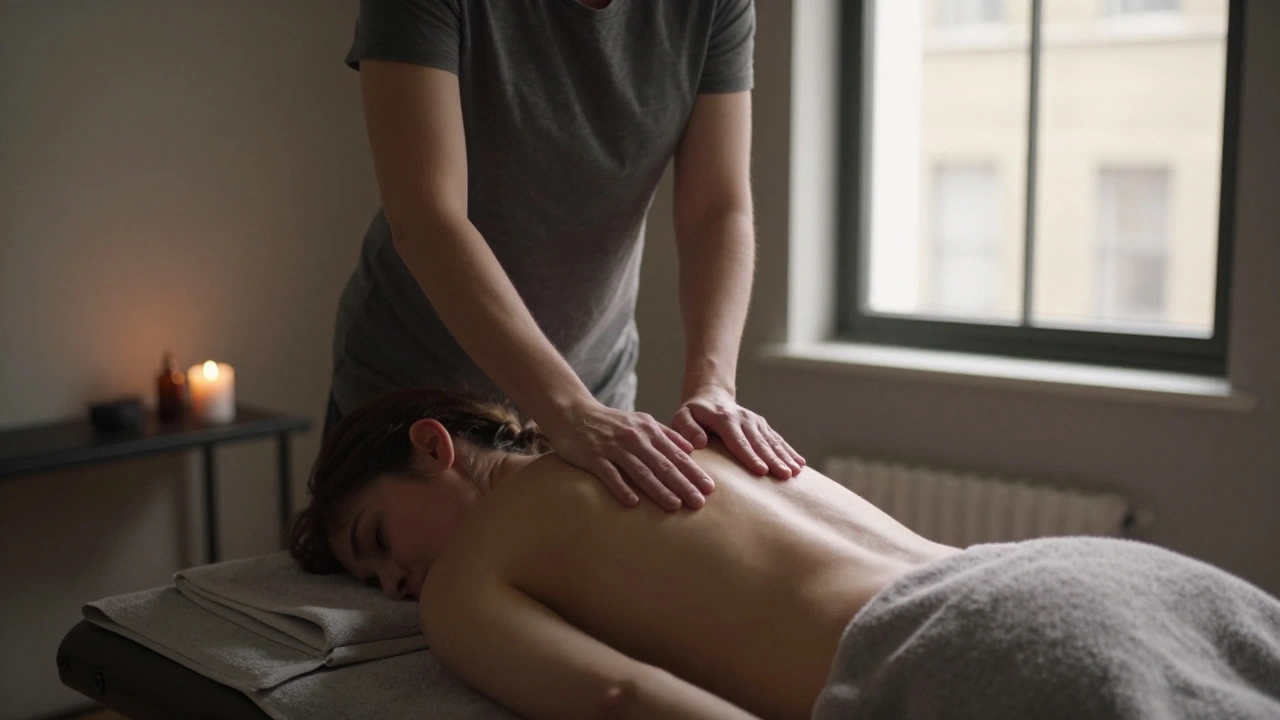Massage Therapy in London: Your Shortcut to Feeling Healthier

Most people think of massage as a luxury—a nice way to unwind after a tough week. But in London, massage therapy is turning into one of the smartest health hacks you can add to your routine. Between constant commutes, crowded spaces, and the never-ending buzz of the city, your body takes a hit. Tight muscles, tension headaches, and restless nights pile up fast. Massage isn’t just about feeling good in the moment. A recent NHS-backed study found that regular massages can actually drop your cortisol levels, which means less stress and fewer aches, even days later.
Walking into a London massage studio these days is a game changer because the scene has truly evolved. No more awkward backroom rubdowns, and no more one-size-fits-all approaches. Whether you’re a runner dealing with stubborn calves, sitting behind a desk all week, or just overloaded mentally, there’s a specialist for you. Busy schedule? Many therapists offer 30-minute sessions you can squeeze in during lunch, and some even come straight to your flat. It’s more flexible than ever.
- Why Massage Therapy Matters More Than You Think
- London's Top Massage Styles (And Who They're For)
- How to Pick the Right Therapist in London
- Easy Self-Care Tips Between Sessions
Why Massage Therapy Matters More Than You Think
If you think massage therapy is just for treating yourself once in a while, you’re missing the bigger picture. Science shows that getting regular massages does way more than just loosen up your muscles. In London, folks are finally catching on. Massage therapy isn’t a splurge, it’s smart health maintenance—think less sick days, sharper focus, and even better sleep.
| Benefit | Evidence/Stat |
|---|---|
| Reduced stress levels | Regular massage can drop cortisol (the stress hormone) by up to 30% according to King’s College London research. |
| Improved sleep | 75% of people in a London wellness trial slept better after three weekly sessions. |
| Less muscle tension | Over half of desk workers reported less back pain after monthly massages in a City of London HR survey. |
Most Londoners spend hours hunched over laptops, standing on packed tubes, or training for weekend runs. That’s a recipe for knots, aches, and sore spots you can’t stretch out on your own. The right massage therapy London session can actually help your nervous system reset, lower inflammation, and even support your immune system. A Swedish study found that people getting regular massages had more white blood cells—the ones that help fight off colds.
Here’s something else that’s overlooked: massage helps your body flush out toxins by boosting circulation and lymphatic drainage. Many people say they feel somehow lighter or more energized after, and it’s not just in their heads. If you deal with anxiety, there’s data showing massage can cut symptoms and help you keep a more even mood for days after a session. It’s like a mental reset, not just a physical one.
- If you want the full benefits, consistency matters. Even a short session every couple of weeks can make a difference.
- Pair massage with simple lifestyle changes, like walking more or staying hydrated, to stretch your results.
- If you’re rehabbing an injury, let your therapist know—they can work with your physio’s plan.
Bottom line? Massage therapy isn’t just a treat, it’s a practical way to feel and function better every week.
London's Top Massage Styles (And Who They're For)
London isn’t short on variety when it comes to massage therapy. You’re not stuck with just the classic Swedish massage anymore. Whether you’re dealing with constant back pain, sports injuries, anxiety, or just feel run down, there’s something made for you. Let’s break down the most popular styles you’ll find across massage therapy London clinics—plus who gets the most out of each one.
Swedish Massage: This is your all-rounder and easily the most booked in London. Therapists use long, sweeping strokes to help you relax, ease mild aches, and boost circulation. It’s perfect if you want to de-stress, recover from everyday tension, or simply try massage for the first time.
Deep Tissue Massage: Office workers and gym lovers—this is for you. Deep tissue is a bit more intense. The therapist focuses on the deeper layers of muscle tissue, using firm pressure to dig into stubborn knots. Studies have found it especially helpful for lower back pain and neck tension, both of which are through the roof in cities like London thanks to desk jobs. If you have an old injury that acts up, mention it before your session so they can target it safely.
Sports Massage: This one’s aimed at athletes, weekend warriors, or anyone ramping up for a marathon or cycle ride. It’s big on stretching, muscle manipulation, and sometimes using ice or heat packs. The best thing? Sports massage is often done before or after events—top London therapists will even help map out your treatment through training cycles so you don’t lose momentum.
Thai Massage: Think of it as yoga done for you. No oils, but plenty of stretches that loosen up your joints. If you feel stiff or spend too long sitting, Thai massage can actually improve your range of motion. Just a heads up, you’ll stay clothed for this one, and it definitely involves more movement than you might expect.
Reflexology: Not just a foot rub. Reflexology targets pressure points on your feet (or hands) that connect to different parts of your body. It’s big among Londoners with stress, insomnia, or migraines. Some folks swear by it for dealing with digestive problems, too. Sessions often last just 30 minutes, so it’s easy to fit into a busy day.
If you’re not sure what you need, ask your therapist upfront. Most London massage studios are used to mixing and matching techniques for custom treatments. That way, you actually get results instead of just something that feels nice in the moment.

How to Pick the Right Therapist in London
London is packed with massage therapists, but not all are the same. You want someone skilled, reliable, and who actually listens to what your body needs. Jumping on the first deal you see online often leads to disappointment. Here’s how to make sure you get it right the first time.
Start with the basics: check if the therapist is registered with the Complementary and Natural Healthcare Council (CNHC) or a similar body. These associations set real standards, so you know they’re properly trained and insured. For specialized treatments like sports or deep tissue massage, look for extra qualifications—many pros in London actually display their certificates openly, or share them on their business profile.
- Scan verified reviews—don’t just look at star ratings. Read what people say about the atmosphere, whether the therapist listens, and any red flags others have had.
- Think about what you want from your session. Not every therapist fits every need. If you’re after regular pain relief (like back or neck issues), look for someone who has experience with injury recovery, not just relaxation.
- Ask questions before you book. Good therapists won’t dodge your questions and will happily explain their techniques, session times, and prices up front.
- Notice the little things as soon as you arrive—cleanliness, communication, and if the therapist asks about your health or preferences.
If accessibility matters, more studios now have step-free access, flexible hours, and even mobile appointments for homes and offices across London.
Check out a quick data snapshot on what most Londoners look for when picking a massage therapy London service:
| Factor | Percentage of Clients Prioritizing |
|---|---|
| Professional Qualifications | 68% |
| Experience with Specific Issues | 55% |
| Transparent Pricing | 48% |
| Flexible Booking Options | 41% |
| Positive Reviews/Testimonials | 73% |
London’s best therapists often get booked out early, especially for after-work slots—so if you find a good one, rebook before you leave. Bottom line: a little research pays off, and your muscles will thank you later.
Easy Self-Care Tips Between Sessions
You don't need to wait for your next appointment to get the benefits of massage therapy London offers. Keeping up your body at home actually helps your muscles stay looser and lets the effects of each session last longer. Think of it as basic maintenance between tune-ups.
Here’s the thing: lots of people skip the simple stuff because it feels too obvious, but it works. If you want to see better results from every massage, try these proof-backed tips:
- Stay hydrated. Your muscles actually recover faster when you drink enough water—aim for 1.5 to 2 liters per day. One survey by King's College London found that up to 60% of locals don’t drink enough daily, especially in winter.
- Use a foam roller. Rolling your back, legs, or shoulders for five minutes helps blood flow and keeps tissue flexible. A study from the British Journal of Sports Medicine suggests foam rolling can drop soreness by up to 40% after workouts or long workdays.
- Stretch like you mean it. Instead of rushing, spend at least 30 seconds holding each stretch—especially if you sit a lot. Tight hamstrings and hip flexors are London’s most common stiff spots.
- DIY massage tools. Can’t see your therapist? Tennis balls are your friend. Lean against a wall, press the ball into tight points, and slowly roll it around knots. Simple, but it can ease out tension without fancy gear.
- Watch your posture. Set a reminder to check your posture every hour. Bad posture is linked to more tension headaches and shoulder knots, both super common in city workers.
Here’s a quick look at how these habits can make a real impact:
| Self-Care Habit | Main Benefit | Extra Fact |
|---|---|---|
| Water Intake | Speeds up muscle recovery | 1% dehydration = 12% drop in focus (UCL 2024) |
| Foam Rolling | Reduces soreness | 40% less soreness in active people |
| Stretching | Improves mobility | 30-sec holds bring most benefit (Queen Mary study) |
| DIY Tools | Targets knots quickly | Tennis ball trick rated as effective as a quick pro massage (2023 poll, London Massage Assoc.) |
| Posture Checks | Less headaches and back pain | 80% of city professionals say reminders help |
Even a few minutes with these tricks can help keep your body feeling better, make every professional session count, and probably save you a few quid down the line. London’s pace is full-on, but these habits help you keep up without falling apart between visits.



